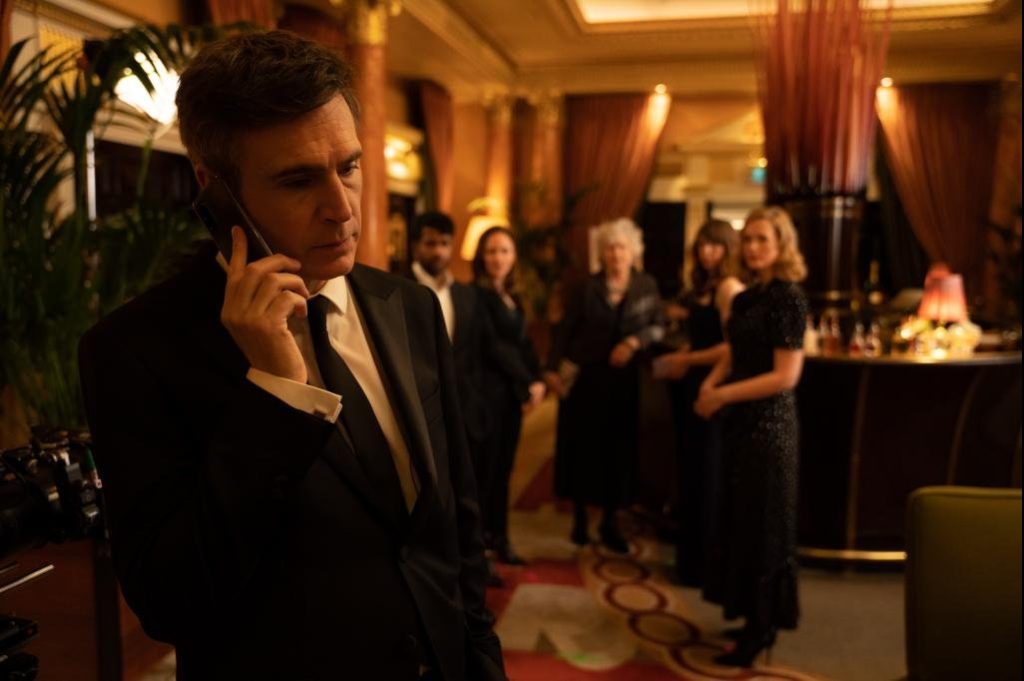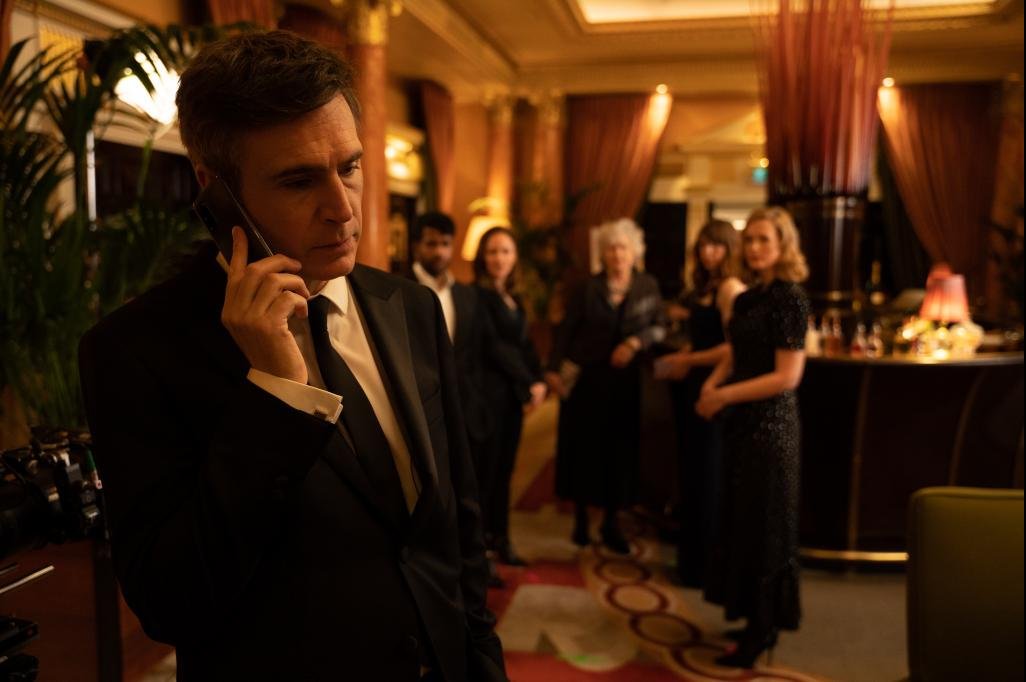I will be completely honest. When British audiences discovered the French comedy Call my Agent! during the covid lockdown, and friends were gleefully urging me to watch this unlikely-seeming smash hit, I didn’t really get bitten by the bug. I watched a couple of episodes, and while the celebrities lampooning themselves were funny (Cécile de France was pitch-perfect in the opening episode), the idea had been done before, and better, by Ricky Gervais in Extras.

There were some fine performances. Camille Cottin is Frenchness personified as Andréa Martel, one of the agents, and Liliane Rovère, whose career began in the early 1960s, is magnificent as the impossible but indispensible grande dame of the agency. But, for some reason, it didn’t hit home with me. Perhaps it was the language barrier, perhaps it was cultural differences, perhaps it just wasn’t my tasse de thé.
It was inevitable, in today’s entertainment world, that there would be an English-language remake. Last month, Amazon unveiled Ten Percent, a close copy of the original with a starry cast including Jack Davenport, Lydia Leonard, Maggie Steed and Jim Broadbent. Curious, I watched the first episode, then found myself bingeing on the whole eight-part series.

It’s very good. Bezos money means a slick and glossy production, and with W1A’s John Morton as showrunner, the dialogue is snappy and quickfire yet inimitably British and awkward. A lot of “Yes” and “Exactly” pours from the nervy characters, especially Rebecca Humphries’ smitten and ultra-loyal PA Julia. Quirky but stylish London slides easily into the place of effortlessly chic Paris, and there is a lot to admire, from Maggie Steed’s imperious performance as Stella Hart to the recurring appearance of Tim McEnnerny as washed-up and fragile strolling player Simon Gould.
[spoiler alert!] I think there’s something else, something deeper, going on too. Jack Davenport anchors the production as Jonathan Nightingale, son of Broadbent’s agency founder and patriarch. After his father’s death, the amiable Jonathan has to step into the leading role at Nightingale Hart, with all the stresses that entails.

For late Gen X’ers like me, Jack Davenport will always be Miles, the posh boy lawyer in the flat-share of This Life. (It is a nice touch that his character’s wife, Charlotte, is played by the excellent Natasha Little, whose insufferably nice Rachel was punched in the face at the conclusion of This Life’s second series.) He may be best known for his work in the Pirates of the Caribbean franchise, but there is a familial line from Miles to Jonathan Nightingale, and Davenport puts in a great performance.
I use the word “great” with due caution. I think Davenport is the unsung hero of Ten Percent. The embattled Nightingale is the sort of performance he can produce in his sleep, but he takes a character of only mild depth to a new plane. He is the quintessential Englishman, well-mannered and seeking to be correct, but he is also the epitome of the canny and guileful agent.
Another spoiler: midway through the series, Nightingale’s marriage to Charlotte comes apart at the revelation that he has fathered a secret child, Misha (Hiftu Quasem). It is in many ways the fulcrum of the series, because we see Jonathan in extremis, and it is as a husband battling to save his marriage from his own mistake that something profound is revealed.

Nightingale is presented as a good agent: indeed, for all the comedic mishaps, we are left in no doubt that all of the staff at Nightingale Hart are fundamentally talented and capable. But with his personal life disintegrating, Jonathan turns (how could he not?) to his gifts as an agent. He tries to bargain with his wife, wheedling and flattering and cajoling, searching wherever he needs to for the right strategy to win Charlotte back.
In this desperation we see that Jonathan’s mask does not slip. Quite the opposite, the professional mask he has created has become so firmly stuck that it will never be removed. In effect he has no boundary between his work and his personal life any more: the context may change, but he has become such a negotiator par excellence that his character is indivisible.
This is the man Jonathan has become. He is calculating, not coldly but effectively, instinctively playing the odds in any difficult situation and always with an eye on a happy compromise which will please everyone. It is, after all, his role and his fundamental purpose, to seek conciliation and settlement. The viewer is left in no doubt that Jonathan knows what he has become, can see himself, almost as if from the outside, bringing his professional skills to a private, emotional emergency, and it is clear too that he hates it.

Davenport is a fine actor, and he is unsurpassable as a picture of controlled dread and devastation. Jonathan is horrified to see himself work as his own agent, in effect, and yet he knows that he has no choice in the matter. He is on a road which leads only in one direction, and there can be no deviation.
That, for me, was the standout theme of the series. Jonathan’s irresistible adoption of a fundamental transactionality is fascinating, a man become a negotiating machine. You are left with the impression that he would look for all the angles in the simple act of brushing his teeth. It is, in some ways, agonising to watch, yet it is Davenport’s skill and class as an actor which allows this dreadful journey to unfold in a show which remains, on the face of it, a relatively light and conventional comedy.
Ten Percent does not break any new ground, or challenge the established architecture of comedy. Watch it on its plain merits and it is funny, quick and charming. But peer beneath the glossy Amazon veneer, and Jack Davenport is doing something much more interesting underneath. His performance is a masterpiece.

